Romania has consolidated its position within the Central European business environment with more companies present this year in the Deloitte Top 500 (34, compared to 30, in 2008). Also, the overall turnover of the biggest Romanian companies has grown by almost 28% to some 39 billion Euro, according to the financial data available at the end of 2008.
“Romania ranks fifth in the region based on the level of representation in Top 500 Central Europe. Compared to 2007, when Deloitte launched this project regionally, the number of Romanian companies with turnovers exceeding one billion euro has grown from 9 to 14. Moreover, this year’s top includes two Romanian-owned companies. Such results prove that the local business environment is maturing and beginning to exploit its potential,” said George Mucibabici, Chairman Deloitte Romania.
He added the financial results in 2009 would reflect the impact of the global economic crisis that had been affecting the region since last quarter of 2008.
“However, we expect a significant presence for Romania in next year’s Top as well, considering that it is the second largest market in the region. We hope that companies operating in sectors traditionally most resilient to the financial crisis and /or those with the flexibility and innovation capacity to respond to new market needs will maintain their position or continue to move up the top,” Mucibabici added.
According to economist Daniel Daianu, things would be difficult for most countries in the region over the following period, including for Romania.
Given financial constraints and drained budgetary resources, the Romanian state has considerable fewer actions to take, compared to euro zone states or countries with cautious budgetary policies. Tempering the crisis effects will depend on the economic recovery of the largest countries in the EU and on the massive investments done with European funds.
“Romania has to take advantage of this opportunity that is not available to other emergent economies (outside the EU). Moreover, the European Commission should encourage a faster recovery by reconsidering the mechanism to access such funds in order to make them more flexible and maybe even design new, unconventional methods to use them”, said Daniel Daianu.
The Deloitte 2009 report provides a dramatic comparison between the region’s fortunes during the last 12 months and the previous years, when – to quote the report – CE was “the darling of global economies.” The first three-quarters of 2008 continued the story of growth, but the global economic and financial crisis came with an impact in Q4.
Top 500 companies’ results provide a glimpse of the size of this impact: during 2008, 388 companies (78% of the top 500) increased revenues by an average of 20%. In the first quarter of 2009, 76% of those companies on which Deloitte has financial information saw their revenue decrease by some 23% compared with the first quarter of 2008.
The picture is similar across a range of industries in the region, with first quarter data for 2009 indicating significant drops in revenue for manufacturing (- 33%), real estate, (- 22%) and energy and resources (- 17%). With a revenue decline of just 1%, the Life Sciences and Healthcare sector was virtually unique in suffering little or no impact.
As in previous years, the energy and resources sector was still the most widely represented in the Top 500 in 2008 with 30% of all entries. Manufacturers declined from 27% of the list in 2008 to just 23%, mainly as a result of the reduced export opportunities in Western Europe.
The report’s conclusion is that Central Europe has drawn back from the edge as the result of rigorous action by national governments, the European Union, other international organizations and the region’s leading businesses.
Based on their ability to recover and end recession, Deloitte has split the region into three groups. Among CE’s countries, Poland was a special case, by avoiding a recession, with GDP growth in the first two quarters of 2009 standing at 0.8% and 1.1% respectively. Romania is part of the countries that appear to be in better shape for rapid recovery, alongside Albania, Bosnia-Herzegovina, Bulgaria, the Czech Republic, Moldova, Montenegro, Slovenia, and Slovakia. Countries that are likely to find recovery more challenging are Croatia, Estonia, Hungary, Latvia, Lithuania, Macedonia, Serbia and Ukraine.
Poland is still the leader of the top, with 188 companies in 2009 (compared to 176, in 2008), followed by the Czech Republic (69, versus 70 last year) and Hungary (with an unchanged number of 60).
The top sees little change compared to last year, with PKN Orlen (Poland) and MOL (Hungary) respectively still in the lead. The impact of the economic crisis over the automotive industry resulted in a slight fall of car makers (Skoda Auto fell from number 3 to 4, Audi Hungary from 6 to 8, and Volkswagen Slovakia from 7 to 11). The Metro Group in Poland (number 7) is the only non-energy, non-manufacturing company in the region’s Top 10.
Deloitte Top 500 also contains charts showing the largest companies in Banking (leader – OTP Bank, Hungary), Insurance (leader - PZU, Poland), Real Estate and Construction (leader - Skanska CS, the Czech Republic), Energy & Resources (leader - PKN Orlen, Poland), Life Sciences and Healthcare (leader – PGF, Poland), Manufacturing (leader – MetInvest Holding, Ukraine), Telecommunications, Media and Technology – TMT (leader - Telekomunikacja Polska SA, Poland), Automotive (leader – Skoda Auto, the Czech Republic) and consumer business / retail (leader – Metro Group, Poland).
Launched in 2007, Deloitte Top 500 Central Europe is an annual top of companies in the region, based on revenues, profit, number of employees and market capitalization. The Top charts companies’ progress in a region which stretches from the Adriatic to the Baltic and the Black Sea and contains 18 countries, all of which have either already joined the European Union or are at various stages of the EU accession process.
In cases where revenue for the fiscal year 2008 was not available, Deloitte used the reported 2007 revenue as a proxy for 2008. Revenue has been calculated in Euros at the relevant average exchange rates for 2006, 2007, and 2008. The revenue for subsidiaries of large groups has been reported as part of the consolidated revenue and shown separately for those subsidiaries.
Quarterly data was collected for a limited number of companies (30% on average) and this is largely unconsolidated data.
Deloitte has sourced the information by individually approaching the companies themselves, from publicly available databases and estimates based on a comparison with last years’ results and our research.
Citeste si:
Calculator Salariu: Află câți bani primești în mână în funcție de salariul brut »
Te-ar putea interesa și:


























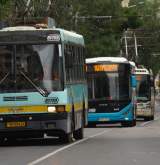






































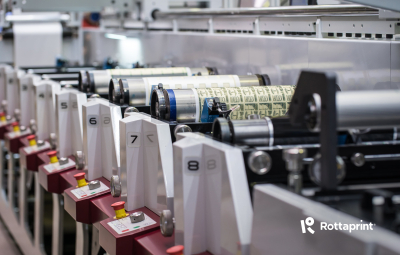






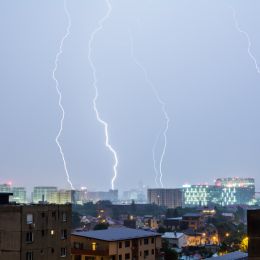
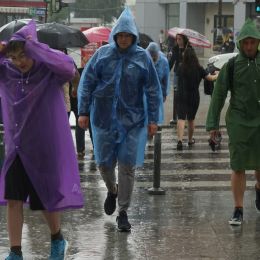








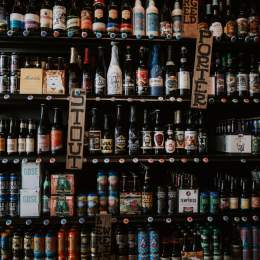
![HR [PLAY] Tech Workout - 11...](https://www.wall-street.ro/image_thumbs/thumbs/973/973fe0a3888d417feff63de42e814180-260x260-00-65.jpg?v=1713507406)









